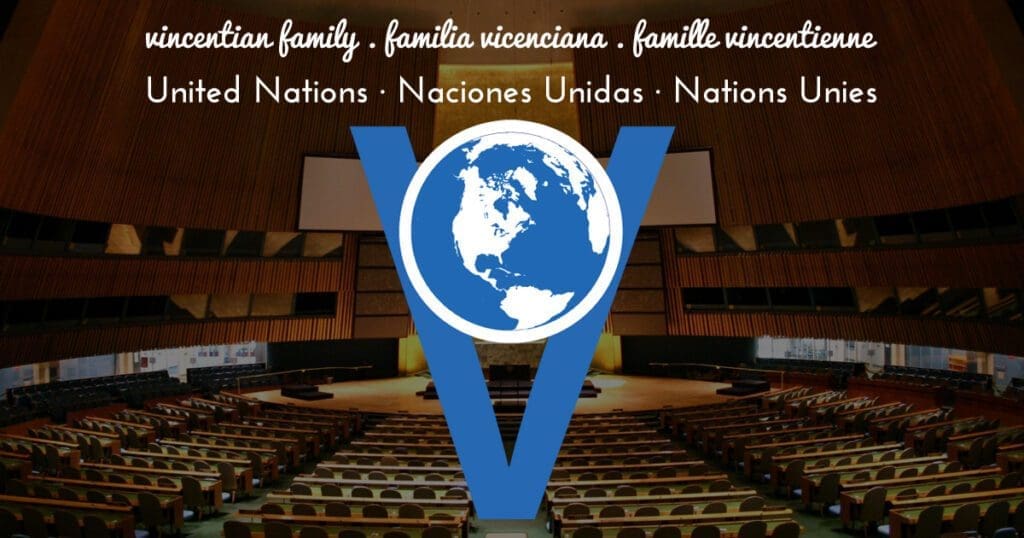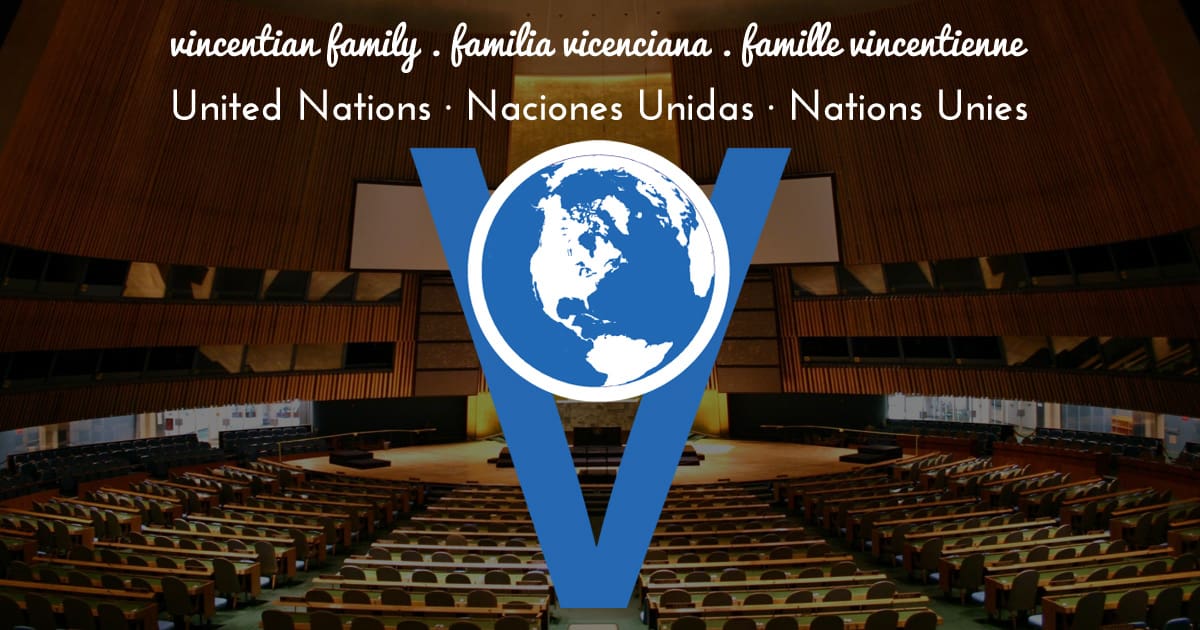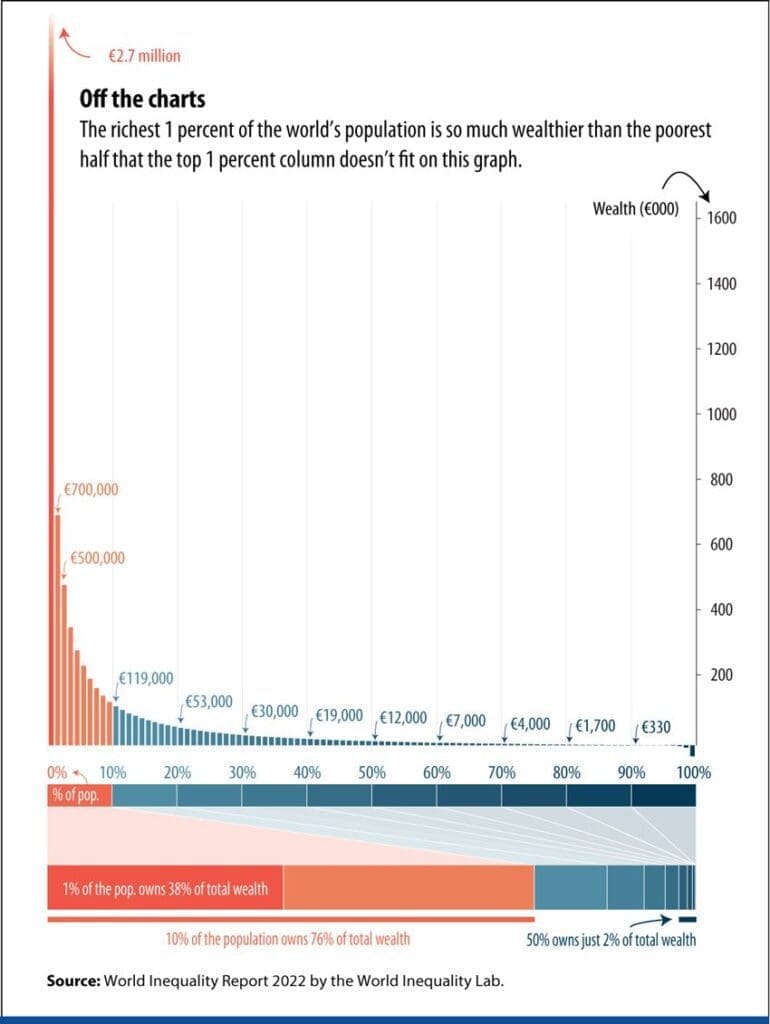Leaving No One Behind: A Promise and a Challenge for our Age
The blessed celebration of Christmas is behind us and in its wake, we recognize that we are called to actively participate in the hope and the meaning of the holiday season in a sustained way, well into the New Year. We do not simply walk away from the miracle of Christ’s birth, returning comfortably to our material pursuits and safe homes. Rather, we look beyond ourselves to the margins of society where so many are left behind, where so many find no room at the inn, where so many seek shelter, nourishment, and a beacon of hope. And we ask, how can we leave anyone behind? How can we turn our backs on those who need us most? This is the challenge of our age, and the call of the Vincentian charism that inspires us. St. Vincent de Paul’s concern for the pervasiveness of poverty that plagued families in his community, along with his dedication to serving the needs of the poor that ultimately defined his life’s work, together stand as a reminder to us of how vital the work of the Vincentian Family is in alleviating the suffering of those living in poverty, of those left behind. His collaborator, Lousie de Marillac, similarly devoted herself to serving the needs of the sick, the resourceless, the hungry, the abandoned, the illiterate, the enslaved – and she directed village girls who became the Daughters of Charity to further her service to the poor. The actions of Louise and Vincent model approaches to leaving no one behind.
Modern society has no fewer societal ills than those that beleaguered the lives of the poor in the 17th century. Indeed, we are faced with more daunting challenges as the gap widens between those who have much and those who have none, as illustrated in the graph below[1]. Economic inequality breeds instability that can polarize factions of society and lead to devastating conflict. Understanding the causes of this inequality is the first step to gaining a foothold in the fight against poverty.
People get left behind because they lack a voice, a choice, and an opportunity to participate in the gains of development. Whether due to environmental shocks that impede or reverse economic development, inequitable or ineffective laws and governance, corruption, weak infrastructure, or discriminatory policies, those left behind suffer undue disadvantage and deprivation that evolve into a vicious and inter-generational cycle of poverty. In communities where poverty is ubiquitous, women and children suffer the most with little or no access to education, finances, health care or shelter. To leave no one behind requires us to creatively devise solutions to seemingly intractable problems that are incorporated in the targets of the U.N. SDGs, with the first SDG aimed specifically at eliminating poverty. With the adoption of the 2030 agenda, U.N. member states pledged to ensure that “no one will be left behind” and to “endeavor to reach the furthest behind first”.[2] We follow that pledge with our mandate to accelerate progress, and to focus on the most vulnerable first.
The NGO Committee on Financing for Development has, as its mission, a goal to tackle poverty through advocacy for those without a voice, and through economic development initiatives that are fully inclusive of all in society. They seek to do this in an environmentally sustainable and ethical manner and are guided by the Addis Ababa Action Agenda and the Monterey Consensus, which set guidelines for development that would end global poverty and advance human rights. This NGO Committee, with representation from the Vincentian Family, works toward changes in policies that would otherwise deter those living in poverty from reaching their full human potential. One of the Committee’s key priorities is Leaving No One Behind (LNOB), and advocating for inclusive financing and development is an effective means to that end.
Inclusive development is, by definition, a “leave no one behind” policy, making imperative the goal of identifying who is left out, left behind, or left wanting by existing development programs, and unveiling and remediating the structural barriers that contribute to their exclusion. Members of the Vincentian Family are committed to this work through their engagement in fighting homelessness, elevating the status of women, advocating for social and economic development, and lifting up the marginalized from their barrenness to a place of inclusion, freedom and growth. We enlist your prayers and actions to ensure that we achieve our goal of greater access for all to economic development resources that will serve to improve lives and advance a just society.
Dr. Linda M. Sama, International Association of Charities
[1] Sourced from: https://www.imf.org/en/Publications/fandd/issues/2022/03/Global-inequalities-Stanley
[2] UNDP (July 2018), “What does it Mean to Leave No One Behind: A UNDP Discussion Paper and Framework for Implementation”, https://www.undp.org/publications/what-does-it-mean-leave-no-one-behind

Tags: United Nations








0 Comments